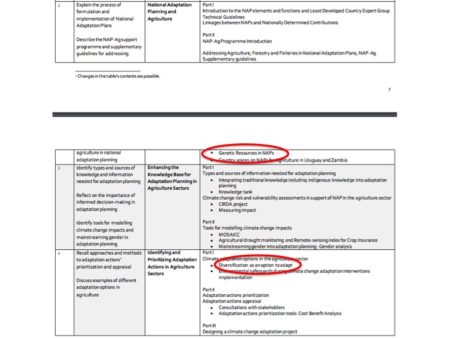Lawrence Haddad of GAIN has a blog post out on the “the data gaps that inhibit productive engagement between the public and the private spheres to advance nutrition.” It’s nicely summarized in a tweet.
What data gaps are holding back the public and the private from working together? See below. https://t.co/Z5IpFvlS8I pic.twitter.com/lmHhk9tCNl
— Lawrence Haddad (@l_haddad) October 10, 2017
Strikes me that many of the same things could be said about public-private partnerships in conservation of agricultural biodiversity too. Only more so.
